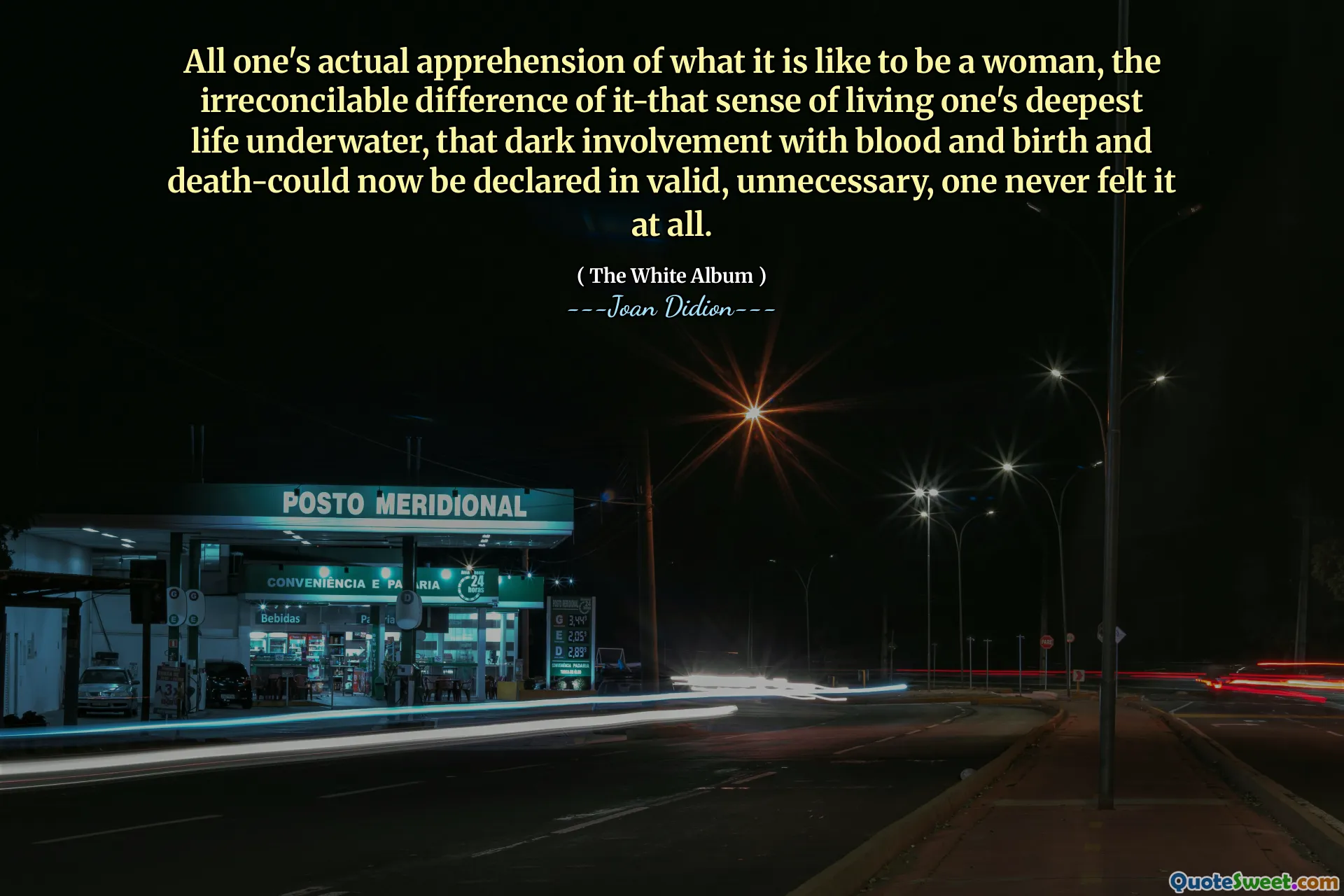
All one's actual apprehension of what it is like to be a woman, the irreconcilable difference of it-that sense of living one's deepest life underwater, that dark involvement with blood and birth and death-could now be declared in valid, unnecessary, one never felt it at all.
In "The White Album," Joan Didion explores the complex and often contradictory experiences of being a woman. She reflects on the profound sense of living beneath the surface of societal expectations, where the realities of life, such as blood, birth, and death, shape a woman's identity. Didion's insights highlight the internal struggles and deep emotional connections that often remain unacknowledged or invalidated by the outside world.
She suggests that societal perceptions can dismiss or undermine a woman's true experiences and feelings. This creates a disconnect between one's lived reality and the ways it is often perceived or labeled by others. Didion's writing serves as a powerful commentary on the need for recognition and validation of authentic female experiences, emphasizing that these feelings and truths matter, regardless of societal norms.







